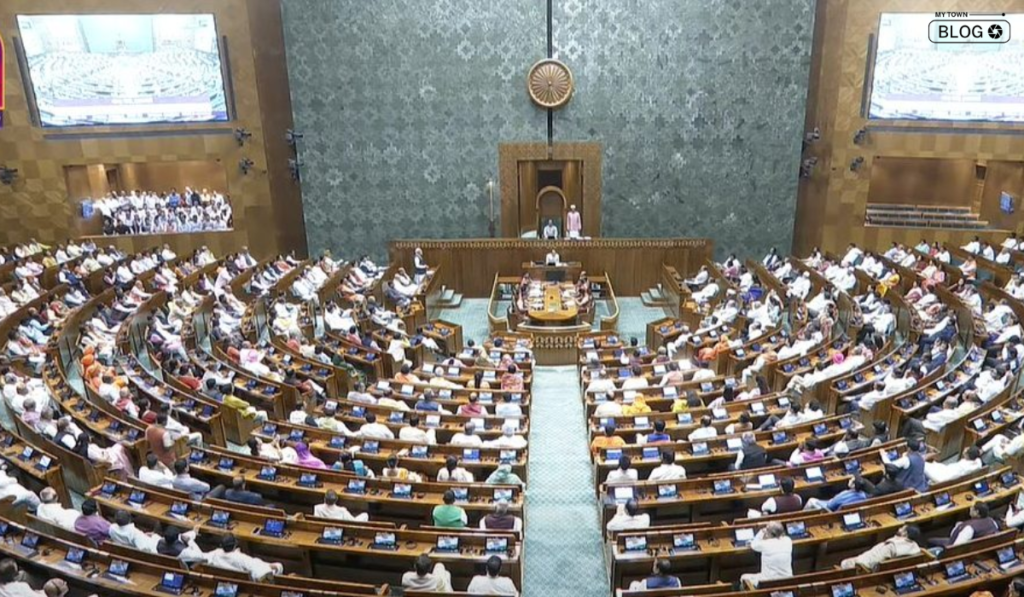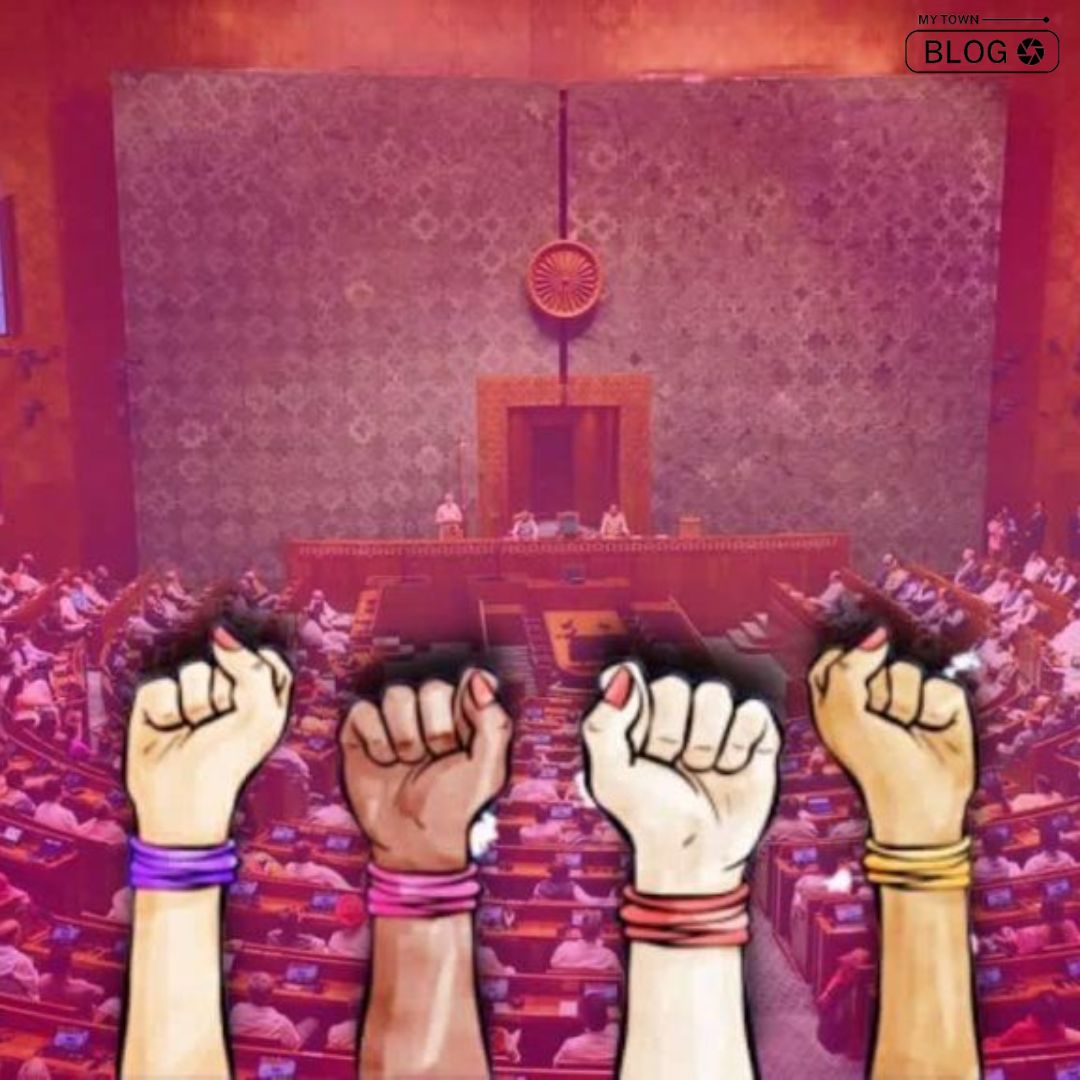After twenty-seven years since its initial introduction in Parliament, the Lok Sabha achieved near-unanimous approval on September 20 for a groundbreaking bill. The Women’s Reservation Bill, a historic and long-awaited legislation, has taken center stage in the Indian political landscape. After twenty-seven years of deliberation and discussion. The Lok Sabha has passed a significant bill that seeks to amend the Constitution, ushering in a new era of gender equality and representation.
Now, the bill moves forward to the Rajya Sabha for consideration during the remaining two days of the Special Session of Parliament. Its final implementation may also hinge on gaining approval from at least half of the states.
Prime Minister Narendra Modi lauded this achievement as historic legislation that promises to amplify women’s involvement in the political sphere. He expressed his gratitude to Members of Parliament from all political parties for their unwavering support of the bill. Sharing his appreciation on social media.
Just two dissenting votes
Out of the 454 Lok Sabha members who endorsed the Constitution (One Hundred and Twenty-eighth) Bill 2023, which required a two-thirds majority of the members present and voting, only two stood in opposition. Asaduddin Owaisi and Syed Imtiyaz Jaleel from the All India Majlis-E-Ittehadul Muslimeen were the sole dissenting voices.
The voting procedure, conducted in the presence of Mr. Modi, was a meticulous process that spanned nearly two hours. With members casting manual votes using paper slips.
Credit Dispute Amidst an Eight-Hour Debate
During the extensive eight-hour debate, both Treasury and opposition members, notably led by Congress, engaged in a heated struggle to claim credit for the groundbreaking bill. Additionally, the debate delved into the topic of whether there should be a distinct quota for women hailing from other backward classes (OBCs).
Home Minister Amit Shah provided assurance to the House, vowing that the government would address any deficiencies in the future. He urged opposition members, saying, Support the bill, and we will ensure reservation.
The Call for a Quota within a Quota
In a notable shift from its stance in 2010, the Congress, under the leadership of Sonia Gandhi, who opened the debate. Advocated for a distinct quota within quota dedicated to OBCs, contingent on the results of a caste census. She emphasised that there was no necessity to postpone the bill’s implementation by linking it to a delimitation exercise, which is slated to remain frozen until 2026.
Sonia Gandhi articulated the Congress’s position, stating, Our demand is for the immediate implementation of the Bill… Simultaneously, provisions must be made for the reservation of SC, ST, and OBC women.
BJP’s Emphasis on OBC Representation
In a robust rebuttal to the proposal for a distinct OBC quota. The Home Minister firmly underlined the BJP’s credentials for supporting OBCs. He pointed out that the BJP not only boasted the largest contingent of OBC lawmakers among all political parties but also had a Prime Minister hailing from the OBC community, referring to Mr. Modi.
A detailed breakdown provided by Mr. Shah revealed that 85 BJP MPs, constituting 29% of its total strength, were OBCs. Additionally, he highlighted that 29 ministers in the government also belonged to backward communities.
Steering Clear of Political Reservations
The Home Minister further clarified that the choice to implement reservation following delimitation was made to allow a quasi-judicial entity like the Delimitation Commission to determine. Following public consultation, which seats should be reserved.
Mr. Shah posed the question, Should we proceed with this? He underscored that if seats such as Congress leader Rahul Gandhi’s Wayanad constituency or AIMIM leader Mr. Owaisi’s Hyderabad constituency were to be reserved. It could lead to accusations of political reservation against the government.
Lengthy Voting Procedure
Law Minister Arjun Ram Meghwal argued that providing immediate reservation would contradict constitutional provisions, highlighting the possibility of legal challenges. He asserted, We will ensure that the Bill doesn’t become entangled in technicalities.
The Lok Sabha debate witnessed the participation of 60 members. Stretching over nearly eight hours, with 27 of them being women MPs. However, the voting process was notably time-consuming. Electronic voting was not feasible due to some political parties failing to notify. The Lok Sabha secretariat about the division numbers or the specific seats designated for individual members.

Conclusion
The passage of the Women’s Reservation Bill in the Lok Sabha marks a significant milestone in India’s political landscape. After a long and rigorous debate, with extensive discussions on various aspects of the bill, including the demand for a separate quota for OBC women. The Lok Sabha demonstrated overwhelming support for women’s representation in Parliament and State Assemblies.
FAQs
Why is the Women’s Reservation Bill significant?
The bill aims to promote gender equality and enhance women’s participation in the political arena. Addressing the historical underrepresentation of women in legislative bodies.
What happens next after the Lok Sabha’s approval of the bill?
The bill will be presented in the Rajya Sabha (Council of States) for consideration during the remaining days of the Special Session of Parliament. It may also require approval from at least half of the states.
Why was there a debate over a separate quota within the quota for OBC women?
Some members, including Sonia Gandhi, advocated for a distinct quota for women from Other Backward Classes (OBCs) after conducting a caste census.
How does the government plan to address reservations after delimitation?
The decision to implement reservations after delimitation aims to ensure that seats are reserved based on recommendations from the Delimitation Commission following public consultation.
What were the concerns raised during the debate in the Lok Sabha?
Members discussed various aspects, including the timeline for implementation, potential legal challenges, and the need to avoid political reservations.
What measures will be taken to ensure the bill’s effectiveness once implemented?
Ensuring the bill’s success may involve addressing concerns. Ensuring that it benefits a wide spectrum of women, including those from marginalised communities, and actively monitoring its implementation.








